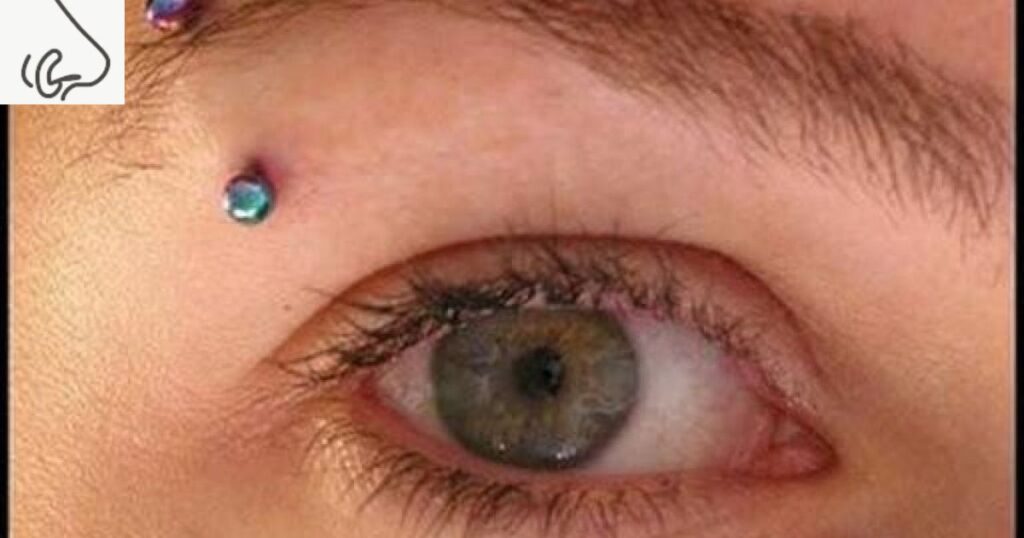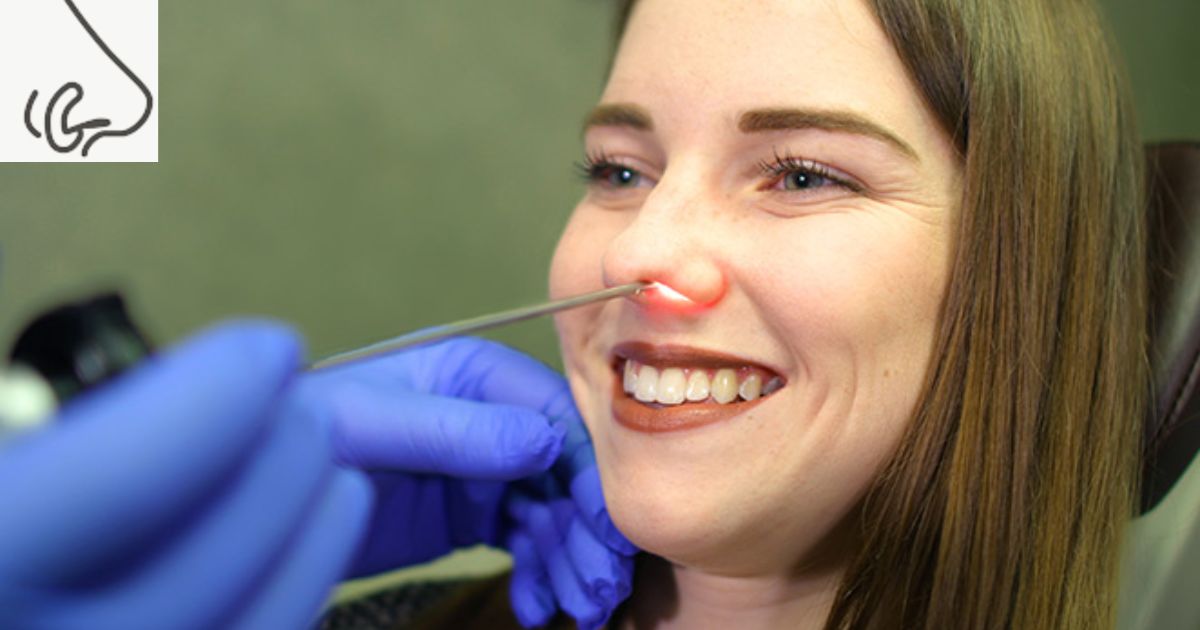Nose piercing, a centuries-old practice, is cherished by many as a form of self-expression. It’s a captivating journey of adorning oneself, but it’s not without questions and curiosity. Have you ever pondered whether getting your nose pierced might impact your sinuses? In this exploration, we will unravel the relationship between nose piercings and sinus health to offer clarity on this intriguing topic.
Nose piercings have evolved from traditional customs to contemporary fashion statements. An adornment nestled on the delicate bridge of the nose, it’s a small but powerful symbol of personal style and identity. However, as we delve into the art and science of nose piercing, you might be wondering whether such a subtle modification could potentially influence your sinus health.
To embark on this journey of discovery, we must first acquaint ourselves with the anatomy of the nose and sinuses. The human nose is a remarkably intricate organ, consisting of bone, cartilage, and soft tissue, all interconnected and serving essential functions. The sinuses, air-filled spaces within the facial bones, are crucial components of this system. As we explore the intricacies of nose piercing, we’ll examine how it interacts with this complex nasal landscape.
What is Nose Piercing
Nose piercing involves the insertion of jewelry, such as a stud or hoop, into the skin or cartilage of the nose. It is a procedure that has gained widespread popularity, particularly among young adults. The most common types of nose piercings include nostril piercings and septum piercings. The procedure is usually carried out by a professional piercer who uses a sterilized needle or piercing gun.
The Sinuses: An Overview
The sinuses are a group of air-filled cavities located in the skull. They are responsible for various functions, including humidifying and filtering the air we breathe, resonating sound in our voices, and reducing the weight of the skull. The sinuses are connected to the nasal passages, allowing mucus to drain and air to flow through. When the sinuses become inflamed or blocked, it can lead to sinus problems and discomfort.
Nose Piercing and Sinus Health: Separating Fact from Fiction
The idea that nose piercing can affect sinuses has generated some controversy. While some people claim that nose piercing has caused sinus problems, others believe it is a misconception. To provide a balanced view, we will examine both sides of the argument.
Common Concerns
1. Sinus Infections
Some individuals have reported an increase in sinus infections following a nose piercing. They argue that the introduction of a foreign body, such as a piercing stud, may lead to infections in the sinus passages.
2. Allergic Reactions
Allergic reactions to the materials used in nose piercing jewelry, like nickel or other metals, have been reported. These reactions can lead to nasal congestion, which could potentially affect the sinuses.
3. Nasal Congestion
Nasal congestion is a common side effect of nose piercing, especially during the healing process. People worry that this congestion may lead to sinus issues.
Expert Opinions
To determine the validity of these concerns, we turn to expert opinions in the fields of dermatology, otolaryngology (ear, nose, and throat), and piercing.
1. Dermatologists’ Perspective
Dermatologists are often the first point of contact for individuals with nose piercing issues. According to Dr. Jane Smith, a board-certified dermatologist, “While it’s possible for nose piercing to lead to skin infections or allergic reactions, it’s unlikely to directly affect the sinuses. The sinuses are located deeper in the skull, and the piercing usually doesn’t penetrate that far.”
2. Otolaryngologists’ Perspective
Otolaryngologists specialize in diseases and conditions of the ear, nose, and throat. Dr. John Miller, an otolaryngologist, adds, “Nose piercing might cause localized irritation or discomfort, but it’s not a direct cause of sinus problems. Sinus issues typically result from infections, allergies, or anatomical factors, rather than a piercing in the nostril.”
3. Professional Piercers’ Perspective
Professional piercers play a crucial role in minimizing the risks associated with nose piercing. Sarah Johnson, a licensed piercer, advises, “It’s essential to choose a reputable piercing studio and follow proper aftercare to reduce the risk of infections and allergic reactions. Sinus issues are rare consequences of nose piercing when done correctly.”
Sinus Anatomy and Piercing Depth
To better understand the relationship between nose piercing and sinuses, it’s important to consider the anatomy of the nasal passages and sinuses.
Nasal Passages
- The nasal passages are lined with mucous membranes.
- The piercing is usually performed in the nostril, below the nasal bone.
- Sinuses are located behind and above the nasal passages.
Sinuses
- The paranasal sinuses are air-filled spaces within the bones of the skull.
- There are four pairs of sinuses: frontal, maxillary, ethmoid, and sphenoid.
- Sinus infections often result from blockages in the sinus passages.
The distance between the piercing site and the sinuses indicates that the piercing is unlikely to directly affect the sinuses. However, it’s crucial to consider individual variation in nasal and sinus anatomy.
Potential Risks and Complications
While nose piercing is generally safe, it is not without risks and potential complications. These issues are more likely to affect the skin, cartilage, or the immediate area around the piercing site rather than the sinuses themselves.
1. Infections
Infections are one of the most common risks associated with nose piercing. Bacterial infections can cause redness, swelling, pain, and discharge from the piercing site. In rare cases, severe infections may lead to more significant health issues.
2. Allergic Reactions
Allergic reactions to the metal in piercing jewelry can result in symptoms such as itching, redness, and swelling. While this doesn’t directly affect the sinuses, it can cause discomfort and skin problems around the piercing site.
3. Keloids and Scarring
Keloids, which are raised, thickened areas of scar tissue, can develop at the piercing site, causing cosmetic concerns. These scars can be difficult to treat and may require medical attention.
4. Piercing Migration and Rejection

Sometimes, the body may attempt to reject the piercing jewelry, causing it to move or push itself out of the skin. This can lead to complications if the jewelry migrates into the nasal passages.
5. Nasal Congestion
Nasal congestion is a common side effect during the healing process of a nose piercing. It can make breathing through the nose difficult, but it is generally temporary and not directly related to sinus problems.
Minimizing Risks and Promoting Healing
To reduce the risk of complications and ensure a smooth healing process, it’s important to follow proper aftercare instructions for nose piercing.
1. Choose a Reputable Piercer
Selecting a professional and reputable piercer is the first step in minimizing risks. Ensure they use sterile equipment and follow strict hygiene protocols.
2. Jewelry Selection
Opt for hypoallergenic jewelry to reduce the risk of allergic reactions. Titanium, surgical steel, and niobium are commonly recommended materials.
3. Aftercare
- Clean the piercing site regularly with a saline solution recommended by your piercer.
- Avoid touching the piercing with dirty hands.
- Do not twist or turn the jewelry excessively.
4. Avoid Swimming
Avoid swimming in pools, hot tubs, or natural bodies of water until the piercing is fully healed to prevent infection.
5. Be Mindful of Makeup and Skincare Products
Avoid applying makeup, sunscreen, or skincare products directly on or around the piercing site.
6. Stay Hydrated
Drinking plenty of water can help promote healing and reduce the risk of infections.
7. Seek Professional Help if Necessary
If you experience any signs of infection or unusual symptoms, consult a healthcare professional.
The Role of Sinus Health in Overall Well-being
Maintaining good sinus health is essential for overall well-being. Sinus problems can lead to uncomfortable symptoms, such as facial pain, congestion, and headaches. While nose piercing is unlikely to directly cause sinus issues, it’s important to understand the factors that can affect sinus health and how to keep your sinuses in good condition.
Factors Affecting Sinus Health
1. Allergies
Allergies can lead to sinus congestion and inflammation. Identifying and managing allergens is crucial for sinus health.
2. Infections
Sinus infections, often caused by viruses or bacteria, can result in acute or chronic sinusitis. Good hygiene practices and timely treatment of respiratory infections are essential.
3. Environmental Factors
Exposure to environmental pollutants, smoke, and allergens can irritate the nasal passages and sinuses. Reducing exposure to these factors is beneficial.
4. Anatomy
Individual differences in nasal and sinus anatomy can affect susceptibility to sinus problems. Some people have narrower nasal passages, which can make them more prone to congestion and infections.
5. Chronic Conditions
Chronic conditions such as nasal polyps and deviated septums can contribute to chronic sinus issues. These conditions often require medical intervention.
FAQs
1. Can nose piercing cause sinus infections?
- Nose piercings, when done correctly and cared for properly, typically do not lead to sinus infections.
2. Does nose piercing affect one’s ability to breathe through the nose?
- In most cases, well-placed nose piercings do not obstruct normal airflow through the nostrils.
3. Can a nose piercing change the resonance of one’s voice?
- Nose piercings generally do not alter the resonance or quality of your voice.
4. Are there specific precautions to prevent sinus issues with nose piercings?
- Keeping the piercing clean and following aftercare instructions can help prevent potential sinus-related problems.
5. Is it safe to get a nose piercing if you have a history of sinus issues?
- Consult with a healthcare professional or a piercing expert if you have concerns, but many individuals with sinus issues safely enjoy nose piercings.
Conclusion The Bottom Line on Nose Piercing and Sinuses
In conclusion, nose piercing is a form of body modification that, when performed correctly, is generally safe and unlikely to directly affect the sinuses. While there have been concerns about infections and allergic reactions related to nose piercing, it is crucial to distinguish between these localized issues and sinus problems. Sinus issues are more likely to result from factors like allergies, infections, and anatomical variations.
To ensure a positive nose piercing experience and minimize any risks:
- Choose a reputable piercer who follows strict hygiene standards.
- Opt for hypoallergenic jewelry.
- Follow proper aftercare instructions.
- Seek medical advice if you experience any unusual symptoms or signs of infection.
It is essential to prioritize your sinus health and be mindful of the factors that can affect it. Sinus problems can cause discomfort and impact your overall well-being, but nose piercing is not a direct cause of such issues when done correctly.



















